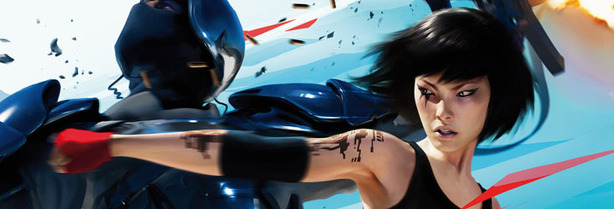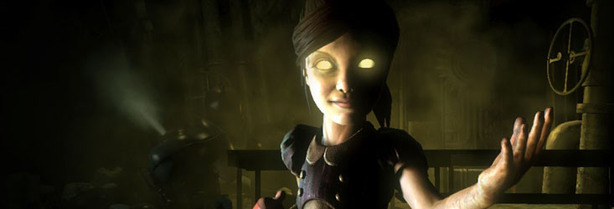Death of the Author
Say what you like about interactive movies, at least they were games that foregrounded story - one problem with current game development is that imbalances or a lack of connection between story and game can easily arise, as games are constructed by huge, disparate teams.“Too often in games development ‘story’ is considered to be something that can be poured on top, long after a game has been designed and productions is in full swing. Like a kind of narrative custard,” Rhianna Pratchett, scriptwriter for Overlord and Mirror’s Edge, told us.
“But the uniqueness of games cannot be ignored. The challenges of immersing players in a story - really making them feel like an active agent in it and weaving narrative and gameplay together in a way that compliments, rather than clashes - are not to be under-estimated.”
Game scripts are often developed after concepts, settings, levels and core gameplay have already been designed, with Rhianna Pratchett’s work on Overlord being one of the many examples and even parts of the much-loved Thief 2: The Metal Age being guilty of that sin. For Overlord, the team was already a good third of the way through development before Pratchett was invited onto the team as scriptwriter.
“Narrative in games isn’t often given the attention it both deserves and needs in order to flourish,” she explains. “In the past story construction and script has often been the remit of designers, producers or others who did it in addition to their main role. There’s a popular misconception that being able to construct the basics of language, namely the mechanics of writing, automatically means that someone can write a good story. It’s not the case.”
“Story creation is a skill that is honed, practiced and developed over the course of many years, even by the most successful of storytellers. Finding a writer is only one part of the challenge (and it’s certainly becoming a little more commonplace these days) using them correctly for the needs of the project is still an on-going battle.”
The idea that the games industry itself doesn’t cultivate strong linear writing in games might be slightly disconcerting for anyone hoping to be some kind of gaming auteur, but it highlights the fact that games aren’t just interactive because we play them; they’re interactive in large part because that can be a built-in characteristic of game writing.
“We know gamers will play each campaign multiple times, so we write knowing that,” explains Chet Faliszek, using Left 4 Dead 2 as an example. “Gamers don’t think it is odd that different replays give them different information.”
“You don’t hear – I played it once and Coach didn’t say that so that isn’t true. They understand we are trapping them in time and playing the versions of that event in multiple different ways and if they combine them all they get the complete picture.”
Unlike the majority of movies and novels, which are watched or read only a few times, games are played over and over and over again. What Chet is basically describing is a process of writing the author out of the game and bringing the player to the forefront.You might have come across Doug Church’s 2000 GDC speech about abdicating authorship in games. The argument (roughly) was that players and designers are not cooperative partners and designers must let go of complete control in order to allow the player to interact with and become immersed in the game.
Similarly, the task of the game scriptwriter is to understand what defines a game and what doesn’t. What makes the player significant to the story and what can severely limit the player’s ability to make meaningful choices.

MSI MPG Velox 100R Chassis Review
October 14 2021 | 15:04












Want to comment? Please log in.